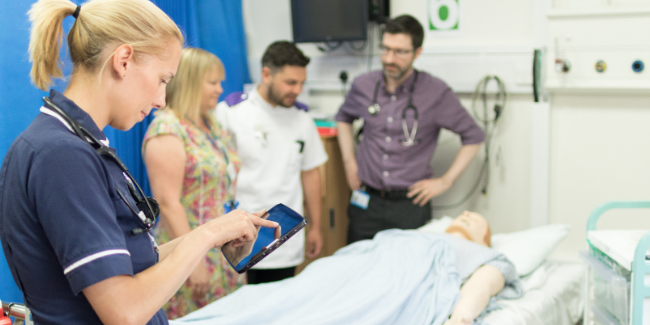
When in October this year, the BMA published its statistics on the impact of COVID-19 on the capacity of the NHS, they
made for sobering reading.
The figures show a decline in outpatient attendances of nearly 13.4m for August and September as the NHS re-focused on critical care for people with coronavirus symptoms. The average waiting time for specialist referrals rose to 14.8 weeks.
In healthcare, time is arguably the most precious commodity there is. A 2016 study from the University of York found a significant correlation
between longer waiting times and in-hospital mortality or emergency readmission for patients waiting for bypass surgery. The BMA found that 20% fewer patients started their cancer treatments in August 2020 than they had in the same
month in 2019, largely as a result of reduced capacity and availability.
We have long known that efficient, expert and repeatable access to quality information and reliable evidence has a profound impact on both health outcomes and the efficiency of healthcare provision. The joint CILIP/HEE campaign #AMillionDecisions has provided dozens of examples of the impact of evidence-based clinical care and the cost-savings to the NHS.
But what we lacked was a truly rigorous econometric study that could put this impact into its proper context in a way that will resonate across both clinical and non-clinical specialists. Until now, that is.
The publication of the Health Education England report Value proposition for librarians and knowledge specialists in health – The gift of time
at a Libraries All-Party Parliamentary Group meeting at the beginning of November marks something of a turning-point in making the case for librarians and knowledge specialist staff in the healthcare system.
The report, commissioned by HEE from health economist Jacque Mallender of Economics by Design, tells a powerful story of how librarians and knowledge specialists take the ‘heavy lifting’ out
of evidence-based practice for clinicians, in turn giving them that most precious of all gifts – time.
As the report says, “The core Value Proposition is simple: the service provides healthcare professional staff with time-saving accelerated access to better quality evidence which, in turn, enables the NHS to meet its statutory obligations
to utilise evidence from research, and, as importantly, for healthcare professionals to use their time more effectively to drive improvements against the quadruple aim” (a metric of the overall success of the NHS).
Perhaps most starkly of all, the report puts a financial value on the impact of library and knowledge services – an estimated net economic benefit to the NHS of £77m per year. If a proposed increased ratio of library and knowledge staff
to clinical staff is achieved, this could rise to an annual saving of more than£106m. This is money that can be put to work for the benefit of patients and their carers across the healthcare ecosystem.
As we face a challenging winter, with pressure on NHS services predicted to increase and a potential surge in COVID-19 related admissions over Christmas, policymakers and NHS managers need to do everything in their power to relieve pressure
on an already over-burdened system and on hard-pressed clinical staff.
Now, thanks to this report, we can demonstrate to Parliamentarians, NHS leaders and the people holding the purse strings that a small investment in professional librarians and knowledge specialists at this vital stage will give them in
return the most important gift of all – the life-saving gift of time.
Download the report in full from the NHS Health Education England website
Banner image: Librarian and Knowledge specialist at Frimley Park Hospital



